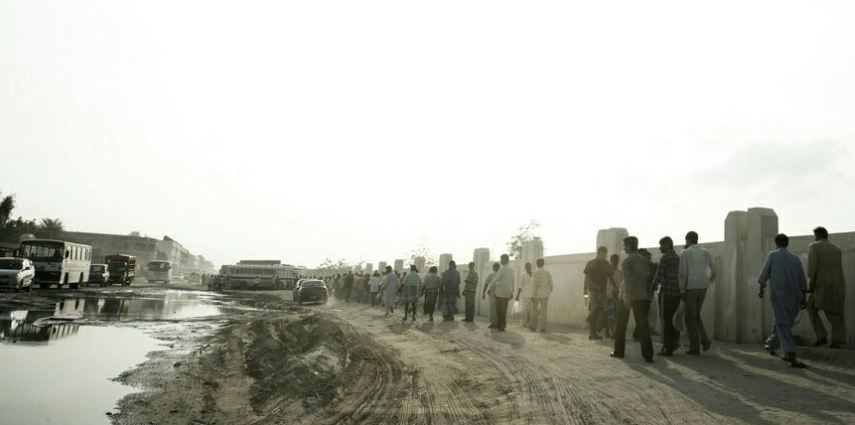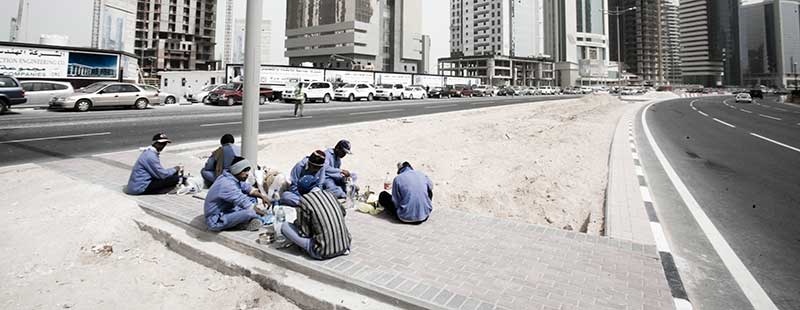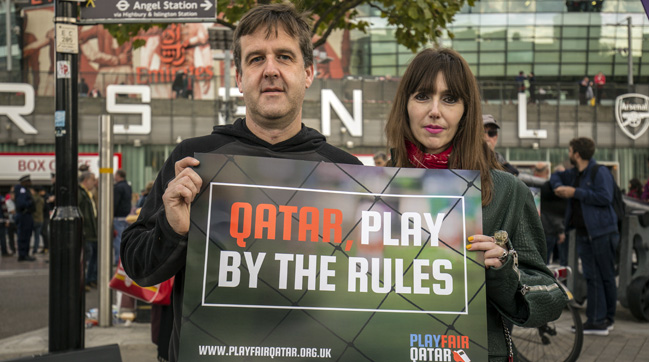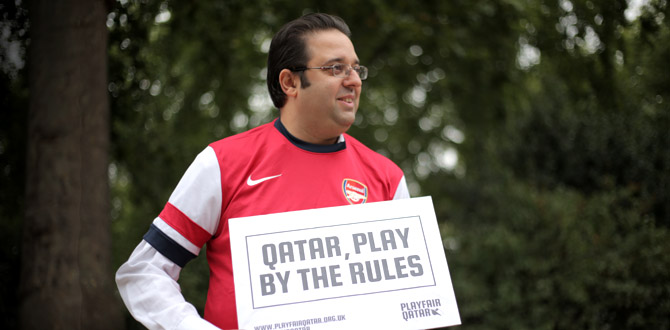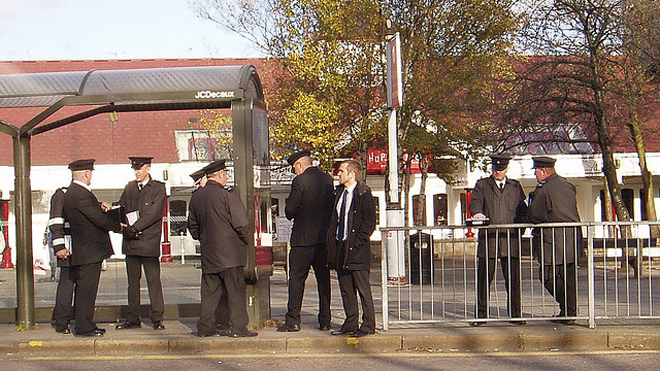Qatar agrees to key campaign demands
After years of campaigning, in which Playfair Qatar and its supporters played their part, Qatar appears to have done the right thing. In a potentially ground-breaking deal, the Government of Qatar has agreed wide-ranging reforms of its reviled kafala system – indeed, almost four years after they promised its abolition, it seems kafala’s time is finally over.
The reforms include measures to end the worst abuses in the country. A minimum wage will end the race-based system of payments that discriminated against workers from poorer countries. Crucially, employers will lose control over their employees’ right to leave the country, removing a much-abused power over workers’ lives. The government will also register all contracts to prevent the scam where workers are duped into low-skill, low pay jobs by employers offering them something better and then switching contracts on arrival.
With these abuses dealt with, serious progress on making Qatar’s construction sites safer can be made.
We have no doubt that the current regional dispute tipped the balance here, but our pressure made this decision possible. Keeping workers’ rights so firmly in the spotlight made it the most obvious monkey for Qatar to shake off its back. Now countries like the UAE and Saudi Arabia, having used this issues in their own propaganda war, need to take a long, hard look at their own labour laws.
This time last year, the BWI – the global construction union federation – made a deal that showed the Qataris that the international unions were a potential ally, not a threat. Although there is so much more still to do, BWI inspections of stadium sites helped raise the standards and increase local understanding of international practice; conditions away from World Cup stadia sometimes remain in need of urgent intervention.
Thank You
“[Our] conditions have been met, and we congratulate the Emir and Qatar’s Labour Minister for their commitment to modernise their industrial relations system,” Sharan Burrow, ITUC
The international coalition of campaigns – including the hard-hitting work of the ITUC in public and its less obvious negotiating behind the scenes, but also the excellent research from Amnesty, Human Rights Watch and an array of Guardian journalists – appears to have succeeded in the unlikeliest of missions. Qatar, with one of the most rotten human rights records in the world, has suddenly signed up to a series of reforms that will elevate rights for workers above all its regional rivals.
Through Playfair Qatar, you have done your bit to support the ITUC’s efforts. What is clear from this deal is just how much the constant pressure over conditions for workers, especially in the context of the World Cup, was hurting Qatar. It wanted its moment of footballing glory to burnish its standing in the world, not burn it down. Campaigns like Playfair Qatar, and others around the world, firmly establishing a connection between the 2022 FIFA World Cup and modern slavery, made it absolutely clear that they wouldn’t get the glory unless they made concessions.
Assessment
It’s not Utopia, but it may no longer be purgatory for workers.
In the fight to fix the abuses of human rights, Qatar’s biggest problem was its inability to open up. The control freakery of the government made it insensate to the wisdom of working with international partners. As well as the legal changes that could protect workers, it is the potential for openness that brings the greatest cause for optimism. A dedicated International Labour Organisation (ILO) office in a country that tried to block a high-level ILO mission just last year is a major step forward. So too is a legal tweak that will make it perfectly acceptable for companies to make deals with global union federations, and there’s a promise of worker committees – including elected reps – in every workplace, too. Qatar’s workers may not have the full freedom to organise their own unions – yet – but they will, for the first time, be able to access union support and advice, and we should expect to see campaigning shifting to putting pressure on firms profiting from Qatar’s construction frenzy to make such deals with global unions.
It was always in Qatar’s interests to do this: it’s taken them too long to see it for themselves, but the shift is welcome. To make (yet) another Schrödinger’s Qatar joke, until we observe their compliance or otherwise they are simultaneously doing the right thing and spinning us a line, but the scale of the promises is so great it’s hard to see them wriggling out of them this time even if they wanted to. Enlightened self-interest was always going to be the only way to get real change. Qatar’s self-interest was never in doubt; it is, perhaps, at last enlightened.
What Now?
We think that Qatar means it this time; the fact that we have to say “this time” is why we won’t be going away just yet. There are almost 2 million foreign workers in Qatar who still don’t have the right to join a union, and are reliant on international pressure to get access to their own human rights. But – again assuming the promises are kept – what’s different now is that we will be able to urge the Government of Qatar to do better, and not simply demand it stops being the worst. It might seem like a small distinction, but it has the potential to be the start of something huge.
Those Promises (via the ITUC)
- Employment contracts will be lodged with a government authority to prevent contract substitution, ending the practice of workers arriving in the country only to have their contract torn up and replaced with a different job, often on a lower wage.
- Employers will no longer be able to stop their employees from leaving the country.
- A minimum wage will be prescribed as a base rate covering all workers, ending the race-based system of wages.
- Identification papers will be issued directly by the State of Qatar, and workers will no longer rely on their employer to provide their ID card without which workers can be denied medical treatment.
- Workers’ committees will be established in each workplace, with workers electing their own representatives.
- A special disputes resolution committee with a timeframe for dealing with grievances will be a centerpiece for ensuring rapid remedy of complaints.


